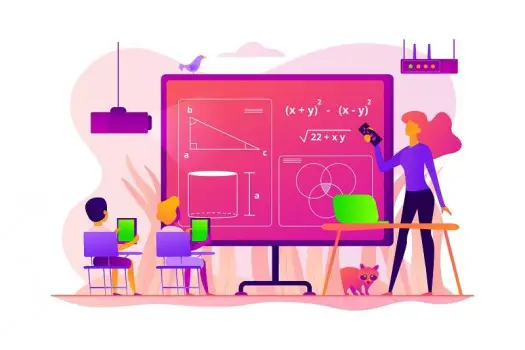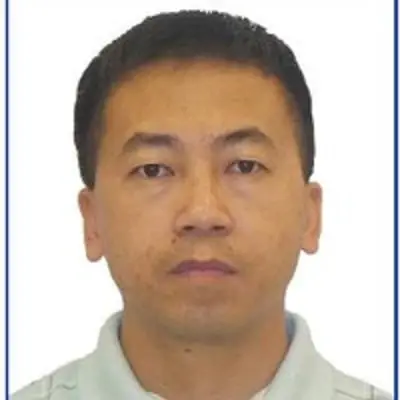
People suitable for these careers are good at mathematics and their job requires them to use a lot of mathematics to solve problems.
Natural Sciences Managers
plan, direct, or coordinate activities in such fields as life sciences, physical sciences, mathematics, statistics, and research and development in these fields.
$154930
Bachelor's degree
High job satisfaction
Personality Match
Treasurers and Controllers
direct financial activities, such as planning, procurement, and investments for all or part of an organization.
$151510
Master's degree
Strong job growth
High job satisfaction
Physicists
conduct research into physical phenomena, develop theories on the basis of observation and experiments, and devise methods to apply physical laws and theories.
$137700
Doctoral degree
Strong job growth
High job satisfaction
Astronomers
observe, research, and interpret astronomical phenomena to increase basic knowledge or apply such information to practical problems.
$126250
Doctoral degree
Strong job growth
Actuaries
analyze statistical data, such as mortality, accident, sickness, disability, and retirement rates and construct probability tables to forecast risk and liability for payment of future benefits. May ascertain insurance rates required and cash reserves necessary to ensure payment of future benefits.
$123180
Bachelor's degree
Strong job growth
High job satisfaction
Aerospace Engineers
perform engineering duties in designing, constructing, and testing aircraft, missiles, and spacecraft. May conduct basic and applied research to evaluate adaptability of materials and equipment to aircraft design and manufacture. May recommend improvements in testing equipment and techniques.
$121110
Bachelor's degree
High job satisfaction
Economists
conduct research, prepare reports, or formulate plans to address economic problems related to the production and distribution of goods and services or monetary and fiscal policy. May collect and process economic and statistical data using sampling techniques and econometric methods.
$120880
Doctoral degree
Strong job growth
High job satisfaction
Environmental Economists
conduct economic analysis related to environmental protection and use of the natural environment, such as water, air, land, and renewable energy resources. Evaluate and quantify benefits, costs, incentives, and impacts of alternative options using economic principles and statistical techniques.
$120880
Doctoral degree
Strong job growth
Chemical Engineers
design chemical plant equipment and devise processes for manufacturing chemicals and products, such as gasoline, synthetic rubber, plastics, detergents, cement, paper, and pulp, by applying principles and technology of chemistry, physics, and engineering.
$114820
Bachelor's degree
High job satisfaction
Applications Software Developers
develop, create, and modify general computer applications software or specialized utility programs. Analyze user needs and develop software solutions. Design software or customize software for client use with the aim of optimizing operational efficiency. May analyze and design databases within an application area, working individually or coordinating database development as part of a team. May supervise computer programmers.
$114270
Bachelor's degree
Strong job growth
Personality Match
Engineering Professors
teach courses pertaining to the application of physical laws and principles of engineering for the development of machines, materials, instruments, processes, and services. Includes teachers of subjects such as chemical, civil, electrical, industrial, mechanical, mineral, and petroleum engineering. Includes both teachers primarily engaged in teaching and those who do a combination of teaching and research.
$114130
Doctoral degree
Strong job growth
High job satisfaction
Mathematicians
conduct research in fundamental mathematics or in application of mathematical techniques to science, management, and other fields. Solve problems in various fields using mathematical methods.
$112530
Master's degree
Strong job growth
High job satisfaction
Remote Sensing Scientists
apply remote sensing principles and methods to analyze data and solve problems in areas such as natural resource management, urban planning, or homeland security. May develop new sensor systems, analytical techniques, or new applications for existing systems.
$110100
Master's degree
Manufacturing Engineers
design, integrate, or improve manufacturing systems or related processes. May work with commercial or industrial designers to refine product designs to increase producibility and decrease costs.
$107060
Bachelor's degree
High job satisfaction
Personality Match
Photonics Engineers
design technologies specializing in light information or light energy, such as laser or fiber optics technology.
$107060
Bachelor's degree
High job satisfaction
Robotics Engineers
research, design, develop, or test robotic applications.
$107060
Bachelor's degree
High job satisfaction
Wind Energy Engineers
design underground or overhead wind farm collector systems and prepare and develop site specifications.
$107060
Bachelor's degree
High job satisfaction
Biologists
research or study basic principles of plant and animal life, such as origin, relationship, development, anatomy, and functions.
$104810
Master's degree
Biochemists and Biophysicists
study the chemical composition or physical principles of living cells and organisms, their electrical and mechanical energy, and related phenomena. May conduct research to further understanding of the complex chemical combinations and reactions involved in metabolism, reproduction, growth, and heredity. May determine the effects of foods, drugs, serums, hormones, and other substances on tissues and vital processes of living organisms.
$104810
Doctoral degree
Strong job growth
High job satisfaction
Mathematical Technicians
apply standardized mathematical formulas, principles, and methodology to technological problems in engineering and physical sciences in relation to specific industrial and research objectives, processes, equipment, and products.
$103930
Bachelor's degree
Strong job growth
High job satisfaction
Personality Match
Materials Engineers
evaluate materials and develop machinery and processes to manufacture materials for use in products that must meet specialized design and performance specifications. Develop new uses for known materials. Includes those engineers working with composite materials or specializing in one type of material, such as graphite, metal and metal alloys, ceramics and glass, plastics and polymers, and naturally occurring materials. Includes metallurgists and metallurgical engineers, ceramic engineers, and welding engineers.
$100550
Bachelor's degree
Mining and Geological Engineers
conduct subsurface surveys to identify the characteristics of potential land or mining development sites. May specify the ground support systems, processes, and equipment for safe, economical, and environmentally sound extraction or underground construction activities. May inspect areas for unsafe geological conditions, equipment, and working conditions. May design, implement, and coordinate mine safety programs.
$100140
Bachelor's degree
Strong job growth
High job satisfaction
Marine Engineers
design, develop, and take responsibility for the installation of ship machinery and related equipment including propulsion machines and power supply systems.
$99590
Bachelor's degree
Strong job growth
High job satisfaction
Marine Architects
design and oversee construction and repair of marine craft and floating structures such as ships, barges, tugs, dredges, submarines, torpedoes, floats, and buoys. May confer with marine engineers.
$99590
Doctoral degree
Strong job growth
High job satisfaction
Biomedical Engineers
apply knowledge of engineering, biology, chemistry, computer science, and biomechanical principles to the design, development, and evaluation of biological, agricultural, and health systems and products, such as artificial organs, prostheses, instrumentation, medical information systems, and health management and care delivery systems.
$98340
Bachelor's degree
Strong job growth
Industrial Safety and Health Engineers
plan, implement, and coordinate safety programs, requiring application of engineering principles and technology, to prevent or correct unsafe environmental working conditions.
$97330
Bachelor's degree
Strong job growth
High job satisfaction
Personality Match
Statisticians
develop or apply mathematical or statistical theory and methods to collect, organize, interpret, and summarize numerical data to provide usable information. May specialize in fields such as biostatistics, agricultural statistics, business statistics, or economic statistics. Includes mathematical and survey statisticians.
$97170
Master's degree
Strong job growth
High job satisfaction
Biostatisticians
develop and apply biostatistical theory and methods to the study of life sciences.
$97170
Master's degree
Strong job growth
High job satisfaction
Water/Wastewater Engineers
design or oversee projects involving provision of potable water, disposal of wastewater and sewage, or prevention of flood-related damage. Prepare environmental documentation for water resources, regulatory program compliance, data management and analysis, and field work. Perform hydraulic modeling and pipeline design.
$96890
Bachelor's degree
Strong job growth
High job satisfaction
Financial Quantitative Analysts
develop quantitative techniques to inform securities investing, equities investing, pricing, or valuation of financial instruments. Develop mathematical or statistical models for risk management, asset optimization, pricing, or relative value analysis.
$96630
Master's degree
High job satisfaction
Risk Management Specialists
analyze and manage risk management issues by identifying, measuring, and making decisions on operational or enterprise risks for an organization.
$96630
Bachelor's degree
High job satisfaction
Personality Match
Mechanical Engineers
perform engineering duties in planning and designing tools, engines, machines, and other mechanically functioning equipment. Oversee installation, operation, maintenance, and repair of equipment such as centralized heat, gas, water, and steam systems.
$95560
Bachelor's degree
Automotive Engineers
develop new or improved designs for vehicle structural members, engines, transmissions, or other vehicle systems, using computer-assisted design technology. Direct building, modification, or testing of vehicle or components.
$95560
Bachelor's degree
High job satisfaction
Civil Engineers
perform engineering duties in planning, designing, and overseeing construction and maintenance of building structures and facilities, such as roads, railroads, airports, bridges, harbors, channels, dams, irrigation projects, pipelines, power plants, and water and sewage systems.
$95440
Bachelor's degree
Strong job growth
High job satisfaction
Transportation Engineers
develop plans for surface transportation projects, according to established engineering standards and state or federal construction policy. Prepare designs, specifications, or estimates for transportation facilities. Plan modifications of existing streets, highways, or freeways to improve traffic flow.
$95440
Bachelor's degree
Strong job growth
High job satisfaction
Operations Research Analysts
formulate and apply mathematical modeling and other optimizing methods to develop and interpret information that assists management with decisionmaking, policy formulation, or other managerial functions. May collect and analyze data and develop decision support software, services, or products. May develop and supply optimal time, cost, or logistics networks for program evaluation, review, or implementation.
$92280
Master's degree
Strong job growth
Hydrologists
research the distribution, circulation, and physical properties of underground and surface waters; and study the form and intensity of precipitation and its rate of infiltration into the soil, movement through the earth, and return to the ocean and atmosphere.
$90150
Master's degree
Strong job growth
Bioinformatics Scientists
conduct research using bioinformatics theory and methods in areas such as pharmaceuticals, medical technology, biotechnology, computational biology, proteomics, computer information science, biology and medical informatics. May design databases and develop algorithms for processing and analyzing genomic information, or other biological information.
$89910
Bachelor's degree
Molecular and Cellular Biologists
research and study cellular molecules and organelles to understand cell function and organization.
$89910
Doctoral degree
Architects
plan and design structures, such as private residences, office buildings, theaters, factories, and other structural property.
$89470
Bachelor's degree
Strong job growth
High job satisfaction
Mathematics Professors
teach courses pertaining to mathematical concepts, statistics, and actuarial science and to the application of original and standardized mathematical techniques in solving specific problems and situations. Includes both teachers primarily engaged in teaching and those who do a combination of teaching and research.
$86760
Master's degree
Strong job growth
High job satisfaction
Chemists
conduct qualitative and quantitative chemical analyses or experiments in laboratories for quality or process control or to develop new products or knowledge.
$86410
Bachelor's degree
Accountants
analyze financial information and prepare financial reports to determine or maintain record of assets, liabilities, profit and loss, tax liability, or other financial activities within an organization.
$81660
Bachelor's degree
Strong job growth
High job satisfaction
Logistics Engineers
design or analyze operational solutions for projects such as transportation optimization, network modeling, process and methods analysis, cost containment, capacity enhancement, routing and shipment optimization, or information management.
$79830
Bachelor's degree
Strong job growth
High job satisfaction
Personality Match
Cost Estimators
prepare cost estimates for product manufacturing, construction projects, or services to aid management in bidding on or determining price of product or service. May specialize according to particular service performed or type of product manufactured.
$72960
Bachelor's degree
Strong job growth
Energy Brokers
buy or sell energy products on the behalf of residential or commercial customers or utilities. Negotiate and oversee contracts for energy sales.
$70490
Bachelor's degree
Strong job growth
Personality Match
Surveyors
make exact measurements and determine property boundaries. Provide data relevant to the shape, contour, gravitation, location, elevation, or dimension of land or land features on or near the earth's surface for engineering, mapmaking, mining, land evaluation, construction, and other purposes.
$70260
Bachelor's degree
Strong job growth
High job satisfaction
Geodetic Surveyors
measure large areas of the Earth's surface using satellite observations, global navigation satellite systems (GNSS), light detection and ranging (LIDAR), or related sources.
$70260
Bachelor's degree
Strong job growth
High job satisfaction
Electronics Engineering Technologists
assist electronics engineers in such activities as electronics systems and instrumentation design or digital signal processing.
$68310
Associate's degree
High job satisfaction
Manufacturing Engineering Technologists
develop tools, implement designs, or integrate machinery, equipment, or computer technologies to ensure effective manufacturing processes.
$67640
Associate's degree
High job satisfaction
Personality Match

.jpg)
.jpg)
.jpg)

.jpg)

.jpg)
.jpg)

.jpg)
.jpg)
.jpg)

.jpg)





.jpg)

.jpg)
.jpg)
.jpg)


.jpg)
.jpg)
.jpg)
.jpg)
.jpg)
.jpg)
.jpg)
.jpg)
.jpg)
.jpg)
.jpg)
.jpg)
.jpg)
.jpg)
.jpg)
.jpg)
.jpg)
.jpg)


.jpg)
.jpg)
.jpg)
.jpg)

.jpg)
.jpg)


.jpg)
.jpg)


.jpg)
.jpg)


.jpg)




.jpg)
.jpg)

.jpg)
.jpg)
.jpg)
.jpg)
.jpg)







